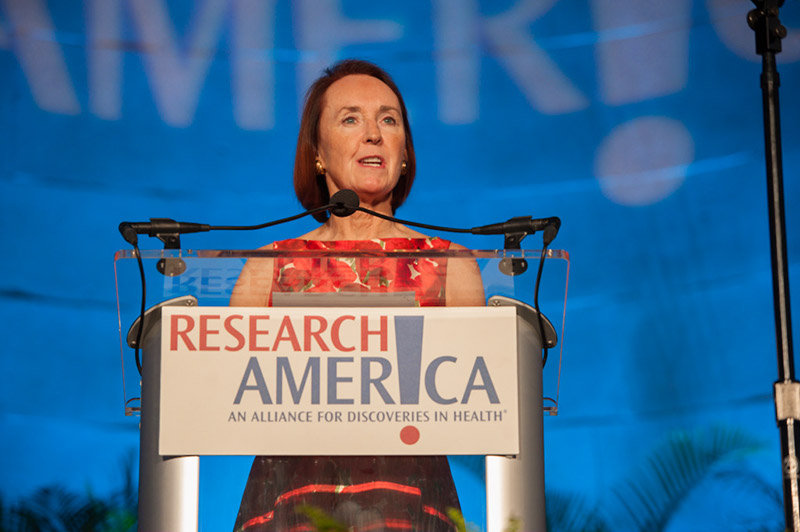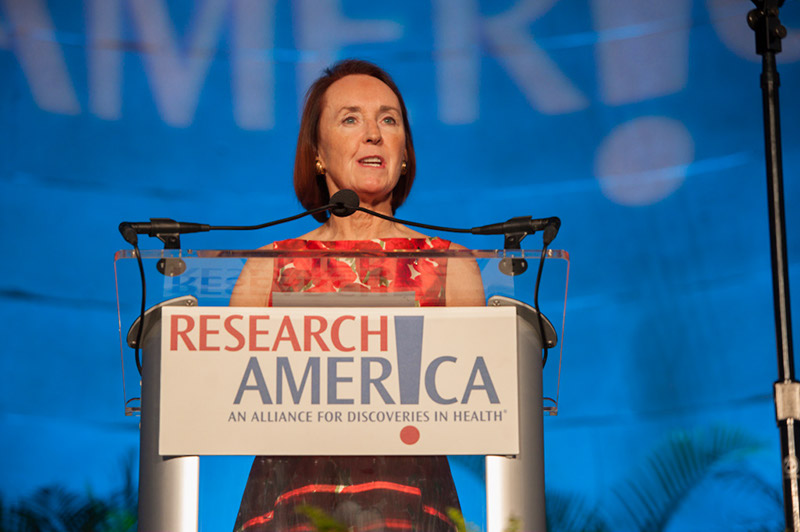Put Science to Work

 Dear Research Advocate,
Dear Research Advocate,
This morning, we sent a letter to House Speaker Nancy Pelosi (D-CA) and Treasury Secretary Steven Mnuchin urging them to reach a deal on an emergency spending package that includes $26B for research relief. As my colleague Ellie Dehoney said in Bloomberg, medical progress has “easily been set back a year.”
Unfortunately, as of this writing, the situation looks grave. Speaker Pelosi had delayed a vote on a slimmed-down version of the HEROES Act referred to as “HEROES 2.0” in the hopes of a bipartisan emergency spending agreement. Now an agreement appears unlikely.
Stabilizing our nation’s research ecosystem is essential to driving medical progress and innovation across all the sciences. Stability also keeps us globally competitive. There has been a lot of high-level attention on competition with China in recent months, and for good reason; that nation is determined to overtake the U.S. in global R&D leadership and is making great strides. (For example, see a recent Nature magazine supplement “Science Cities 2020” ranking Beijing in the #1 position worldwide.)
The new China Task Force Report from the House Foreign Affairs Committee minority points out our nation’s lagging R&D investment and calls for doubling funding over the next 10 years. A new House Select Committee on Intelligence report states that without a significant realignment of resources, U.S. competition with China on the global stage will suffer for decades to come. We simply must put more science to work.
The American Academy of Arts and Sciences and the Rice University’s Baker Institute of Public Policy report The Perils of Complacency: America at a Tipping Point in Science & Engineering, released yesterday, includes a series of eye-opening charts providing evidence that our stature as a global leader in R&D is slipping. The authors point out that the U.S. has no long-term strategy and sorely needs one. Achieving strong global leadership is not about bragging rights. It’s about realizing the potential of our most important asset: our human capital. It’s about ensuring health, prosperity, and security for us all.
Election Countdown: Candidates for Congress and the Presidency are back on the campaign trail. Each of us, by reaching out to candidates now, can set the stage for science to be a higher priority in Washington. Our #VoteScienceStrong site provides all the tools you need to make the case for the absolutely vital importance of science and research to our nation’s future. Engage with candidates through Facebook and Twitter, ask questions at tele-town halls, and have informed exchanges with your network. A bottom-line question to ask: “If you are elected, how will you put science to work?”
Like many of you, we will be watching the Nobel Prize announcements next week. Many Nobel achievements are seeded with federal research funds. We will be connecting the dots for candidates as part of #VoteScienceStrong and urge you to do so as well!
Seeking and Sharing Public Input: The National Library of Medicine (NLM) is soliciting public feedback about their Strategic Plan. As you may know, NLM maintains the ClinicalTrials.gov website and has recently launched a modernization effort to improve user experience. This is an excellent opportunity to provide a user-facing assessment of the world’s largest public research registry as well as feedback on NLM’s many other resources. Comments are due by October 19, 2020.
Tomorrow, October 2, 2020, the National Academies is releasing their Framework for Equitable Allocation of COVID-19 Vaccine report. The report will include recommendations to improve community engagement, access, and vaccine confidence.
Alliance Member Updates: Yesterday, Dr. Larry Tabak, Principal Deputy Director of the NIH, joined our virtual alliance member meeting for a characteristically frank and informative review of issues related to FY20 and FY21 funding. Key takeaways from the discussion:
-
Many NIH Institutes and Centers (ICs) are extending application deadlines; most are considering grant extensions and cost supplements triggered by the pandemic on a case-by-case basis; they face tough choices (made all the more so now by the lack of emergency supplemental research funding).
-
In October, NIH will field a survey designed to solicit feedback from extramural scientists and research organizations on the challenges they are facing.
-
Peer review is taking place remotely; this practice may continue beyond the pandemic.
-
NIH will likely initially reduce grant amounts for FY21, as has been common during other CRs.
If you missed the meeting or would like to re-watch, you can access the recording.
Join us on Tuesday, October 6, 2020, at 11 a.m. ET for our next alliance member meeting with Drs. Lou Garrison and Andras Incze who will discuss the implications of an international reference pricing measure included in a recent Executive Order. If you have questions for our guests, please email them to: [email protected]. Register here.
Stay well, stay safe, and stay connected.
Sincerely,
Mary Woolley
P.S. If you are part of an organization that is not yet a Research!America member, please connect with Katie at [email protected] to learn more about us. The larger our alliance, the louder our voice.




